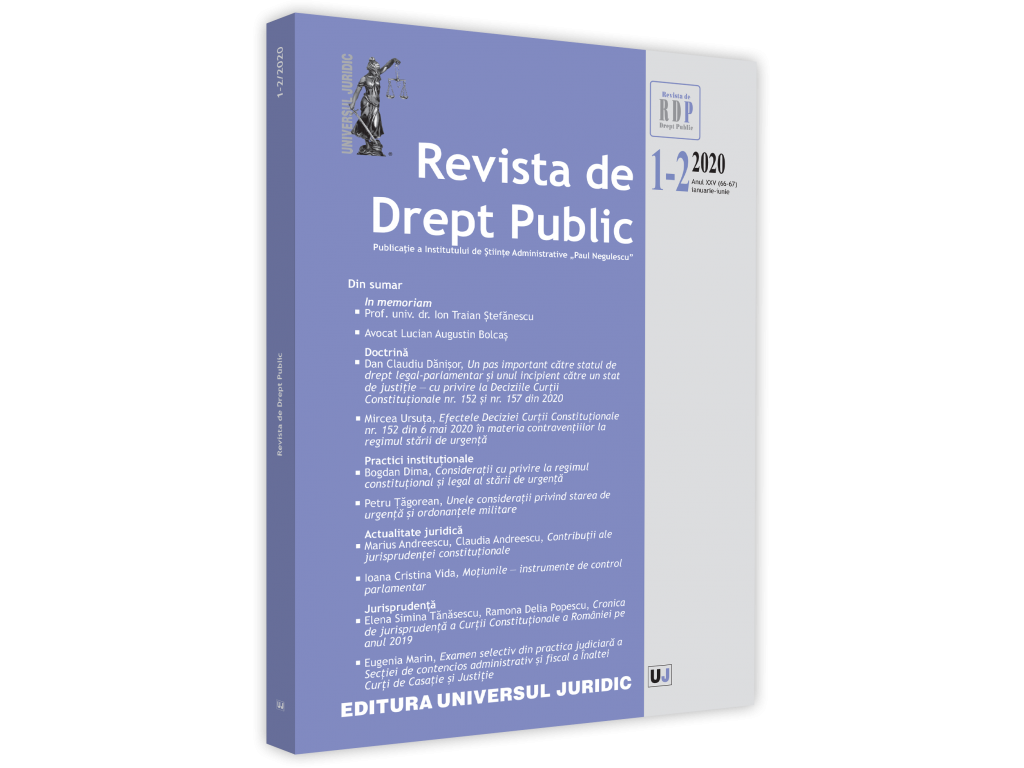Efectele stării de urgenţă asupra exerciţiului drepturilor şi libertăţilor fundamentale, cu privire specială asupra libertăţii conştiinţei
The effects of state of emergency upon the exercise of fundamental rights and freedoms, with special regard to freedom of conscience
Author(s): Mihail Stănescu-SasSubject(s): Law, Constitution, Jurisprudence, Constitutional Law, Civil Law, Human Rights and Humanitarian Law, Health and medicine and law, EU-Legislation
Published by: Universul Juridic
Keywords: state of emergency; freedom of conscience; limitations; derogations;
Summary/Abstract: This article explores the relations between the state of emergency, the restraint of the exercise of certain fundamental rights and freedoms and the derogation form certain international obligations undertook by the State in the field of human rights, paying a special attention to freedom of conscience. Freedom of conscience is a non-derogable right, partially absolute and whose exercise may be, for the rest, both the object of restraint in the exceptional circumstances envisaged by Article 53 of the Constitution, including during the state of emergency, and that of limitation in usual conditions, according to Article 57 read in conjunction with Article 53 of the Constitution. We shall notice how the complex configuration of this fundamental right accompanies us towards a clearer understanding of the relation between the declaration of the state of emergency and the restraint of the exercise of certain fundamental rights, as well as between these and the derogation from certain international obligations in the field of human rights, approach which is also meant to concur to revealing what the state of emergency actually is.
Journal: Revista de Drept Public
- Issue Year: 2020
- Issue No: 01-02
- Page Range: 190-211
- Page Count: 22
- Language: Romanian
- Content File-PDF

